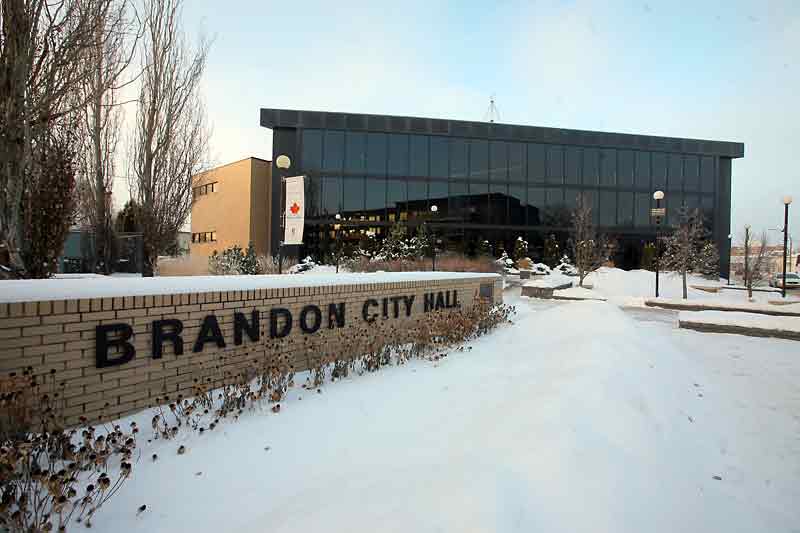Time for some bad budgetary medicine
Advertisement
Read this article for free:
or
Already have an account? Log in here »
We need your support!
Local journalism needs your support!
As we navigate through unprecedented times, our journalists are working harder than ever to bring you the latest local updates to keep you safe and informed.
Now, more than ever, we need your support.
Starting at $15.99 plus taxes every four weeks you can access your Brandon Sun online and full access to all content as it appears on our website.
Subscribe Nowor call circulation directly at (204) 727-0527.
Your pledge helps to ensure we provide the news that matters most to your community!
To continue reading, please subscribe:
Add Brandon Sun access to your Free Press subscription for only an additional
$1 for the first 4 weeks*
*Your next subscription payment will increase by $1.00 and you will be charged $20.00 plus GST for four weeks. After four weeks, your payment will increase to $24.00 plus GST every four weeks.
Read unlimited articles for free today:
or
Already have an account? Log in here »
Hey there, time traveller!
This article was published 13/12/2024 (376 days ago), so information in it may no longer be current.
It’s a budgetary tale of two cities, in which one city confronts the fiscal mistakes made by councils, while the other city just hopes to continue treading water.
On Wednesday afternoon, Winnipeg Mayor Scott Gillingham unveiled his administration’s preliminary 2025 budget. It proposes to raise property taxes by 5.95 per cent, which would be the city’s highest property tax hike since 1990.
Two percentage points of the proposed increase would be allocated to road repairs, 1.5 points to general revenues and Winnipeg Transit operations, and the remaining 2.45 points to items including police, snow removal and the community safety teams patrolling Winnipeg Transit buses and bus stops.

If passed in its present form, the budget increase would raise $44 million in additional revenue for the city, and would translate into a property tax increase of $121 per year — basically $10 per month — for a single-family home assessed at $371,000.
Many have already complained that the proposed increase is too high, given the affordability issues that many Winnipeggers are currently grappling with, but the increase may in fact be too low to resolve the many significant spending demands and revenue challenges faced by our province’s largest city.
Gillingham and his city councillors need only look west to Brandon to see the budgetary consequences of years of inadequate tax increases and failing to address critical infrastructure issues as they arise.
Last year, a report by the MNP consulting firm warned Brandon City Council that the City of Brandon needed to impose “extraordinarily” large property tax increases over the next decade in order to remain financially sustainable.
It said that “tax increases have not been sufficient to reflect inflation and have resulted in diminished reserves at a time when Brandon requires significant investment in infrastructure.” It warned that “the existing funding and taxation plan will not sustainably fund capital growth and renewal, even in the near term.”
The problem in Brandon was caused by previous city councils being too focused on keeping property taxes as low as possible, and not focused enough on the city’s long-term revenue and infrastructure requirements.
In order to address the fiscal predicament, MNP recommended that the city raise property taxes by approximately 13 per cent annually between 2024 and 2027, and approximately three per cent from 2028 through 2033. As an alternative, it recommended a decade of nine per cent annual tax increases, along with delaying several capital projects.
Under each plan, property tax rates would effectively double in Brandon over the ensuing decade, and that would be in addition to a number of fee increases.
In response to those recommendations, the 2024 budget passed by Brandon City Council included a 9.4 per cent property tax increase. The city is expected to need to increase tax revenues by 11.5 per cent in 2025, 10 per cent in 2026 and 9.9 per cent in 2027, meaning that more large property tax increases are likely on the horizon for Brandonites.
When the 2024 Brandon budget was passed, Mayor Jeff Fawcett explained that council was forced to choose between taking a bigger financial hit in the present or experiencing even more difficulties over the longer term. Defending the 9.4 per cent tax hike, he told reporters that “Going forward, we wanted to make sure we can have a manageable city, and we are having to take some bad medicine now.”
“Could it be a cost politically? Maybe so,” he said, “but for the people who come after us, maybe it will be better.”
On Tuesday, 24 hours before the release of Winnipeg’s draft budget, Gillingham’s office issued a news release in which Gillingham is quoted as saying that “The upcoming budget will reflect these needs by prioritizing investments in public safety and infrastructure renewal, while ensuring Winnipeg continues to have the lowest taxes of any major city in Canada.”
Having the lowest taxes in the country is not something Gillingham should be bragging about. Winnipeg’s infrastructure is crumbling, it leads the nation in violent crime, and its overwhelmed wastewater system regularly dumps raw sewage into the Red River.
It can be credibly argued that all of those problems, and others, are the legacy of decades of bad budgetary practices — including property tax rate freezes and inadequate increases — by successive Winnipeg mayors and city councillors.
Gillingham and his city’s current group of councillors would be prudent to pay attention to what is happening in Brandon, and consider following our example. After all, you can only kick the can down the road for so long before problems become bigger, unavoidable and unaffordable.
To paraphrase Mayor Fawcett, a little “bad medicine” now may pay dividends later.
